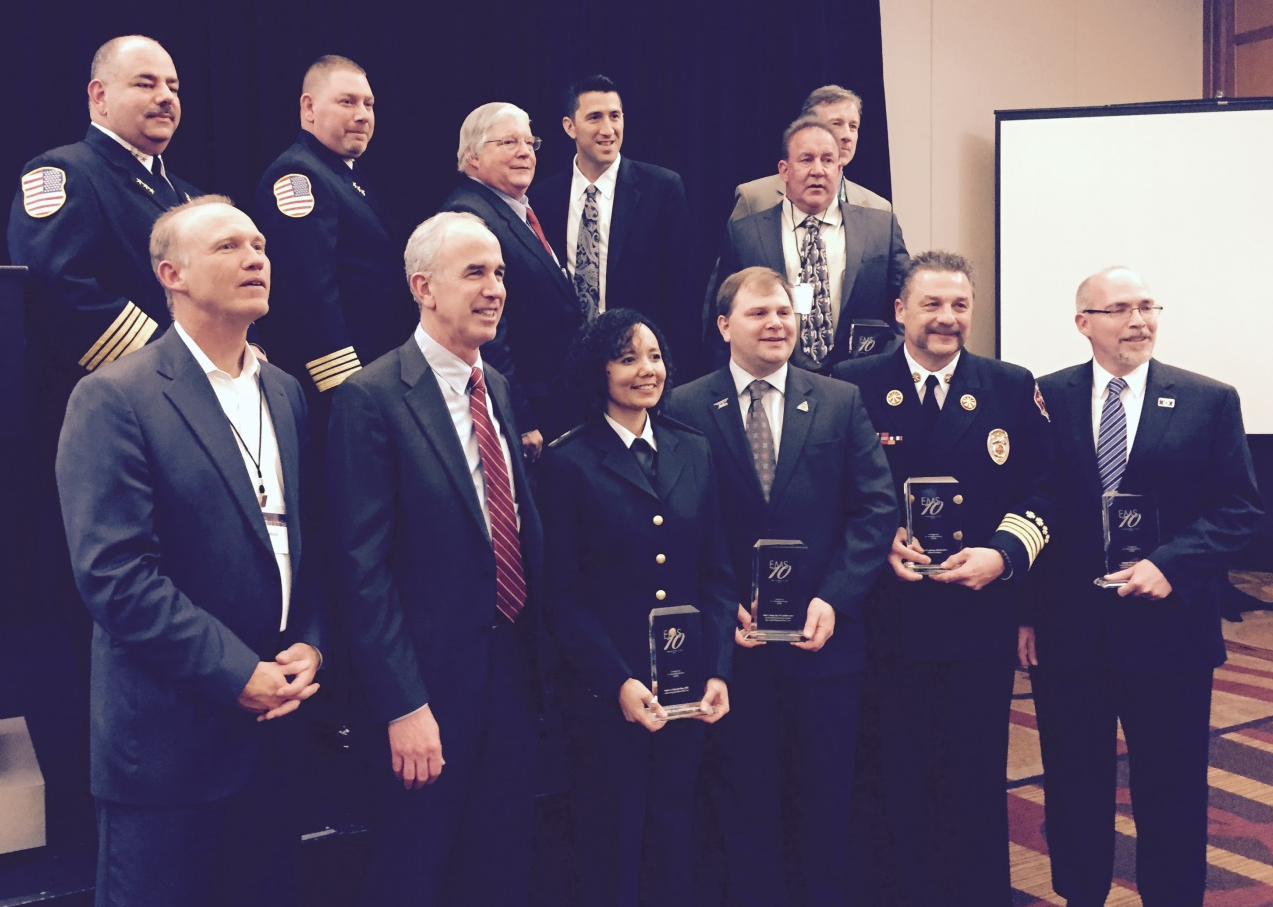Dr. Keith Lurie Honored for CPR Innovations

Dr. Lurie (first row, second from left) with the EMS 10: Innovators in EMS 2014 honorees.
March 23, 2015—Keith Lurie, MD, founder of Advanced Circulatory Systems, now part of ZOLL, and inventor of the ResQPOD® ITD, was among the 10 medical professionals chosen as the EMS 10: Innovators in EMS 2014. Nominated by their peers in recognition of their hard work, dedication, and selfless efforts to make a difference in the delivery of EMS or in the lives of patients and providers, the 10 were honored at a dinner held during the 2015 EMS Today Conference in late February.
Dr. Lurie was recognized for his research and innovation in the field of resuscitation and for helping to identify the profound consequences that poor-quality CPR has on survival. He was the first to use intrathoracic pressure regulation (IPR) as a therapy to increase preload, lower intracranial pressure, and improve perfusion in states of low blood flow. Based on IPR technology, he invented two impedance threshold devices (ITDs), the ResQPOD ITD for use in CPR and the ResQGARD® ITD for use in spontaneously breathing hypotensive patients. He also developed the ResQCPR™ System, which recently received FDA approval with an indication to “improve the likelihood of survival in adult patients with non-traumatic cardiac arrest.”
The ResQPOD creates a vacuum in the chest, pulling more blood back to the heart, lowering intracranial pressure and circulating more blood to the brain and other vital organs than CPR alone. Clinical studies show that it improves survival by as much as 75% when used in conjunction with high-quality CPR.1 Throughout his career, Dr. Lurie has devoted himself to research and innovations that have saved thousands of lives.
All of the winners were profiled in a supplement to JEMS.
1Yannopoulos D, et al. The Effect of CPR Quality: A Potential Confounder of CPR Clinical Trials. Circulation. 2014;130:A9
Related Stories
Airport Traveler Saves a Life with 17 Minutes of CPR
Miracle Man Survives SCA after 42 Minutes of CPR and 11 Shocks
Dozens Perform CPR for 96 Minutes to Help Save SCA Victim
